Students at the Primary School recently took part in an English House Poetry
Competition themed around the season of their House. The winners of the
competition were selected in two areas, the first for creativity and the other for best
use of language. Over 250 students took part in the competition, across all year groups,
who showed off their best works surrounding Spring, Summer, Autumn, and Winter.
James Hassett, Primary Head of English, explains that as the competition took place during the remote learning period the students were limited in activities that they could take part in. Poetry writing was the perfect answer to this, as the students could exercise their creativity from wherever they were. In addition, by offering a diverse range of House competitions held by the school – such as in areas spanning academics, sports, and arts – all students, no matter their interests, can find a time to shine.
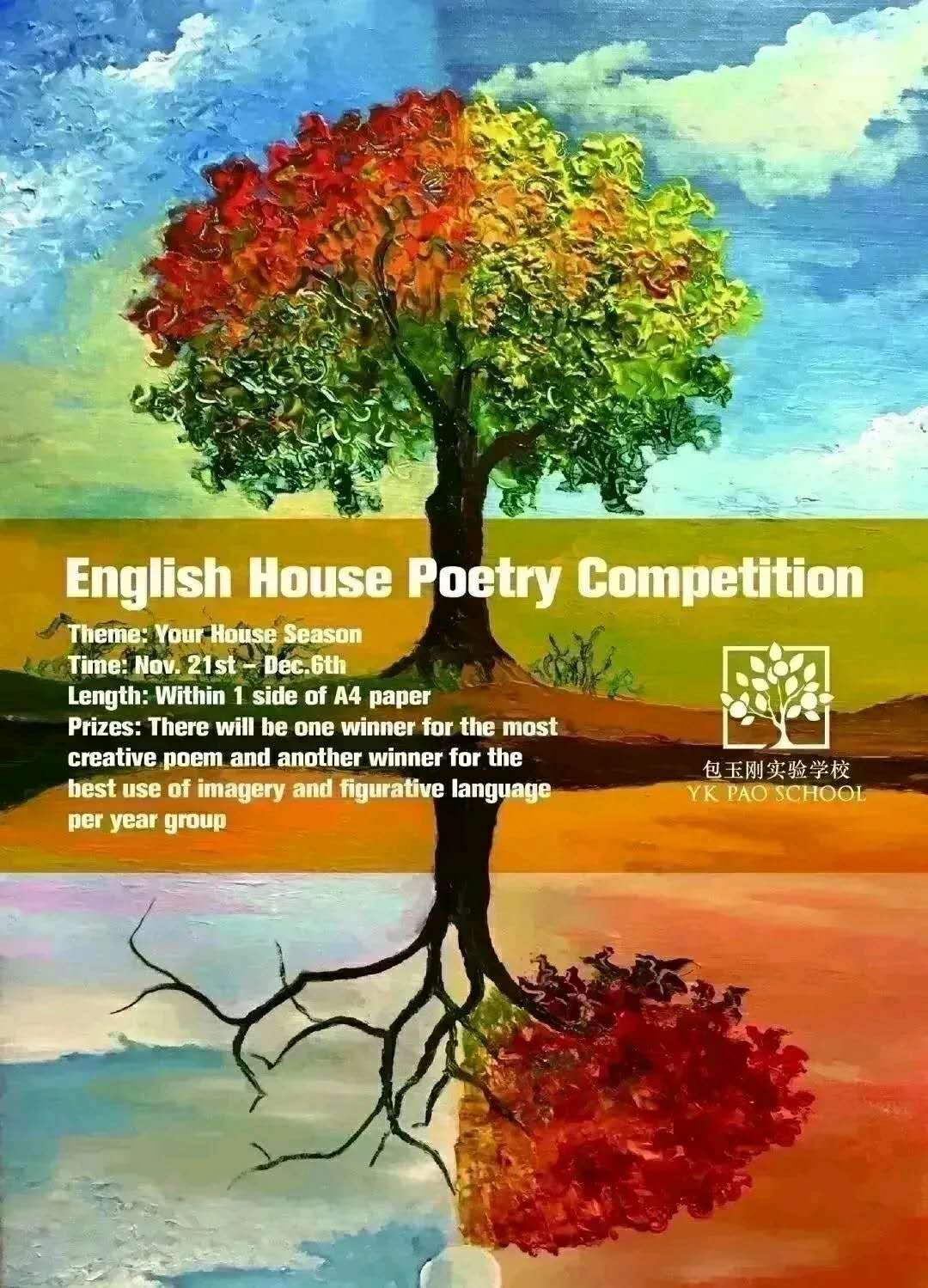
Winter by Y5E Jason 江一帆

“One of the things that we really wanted to get out of students was their voices, the voice is just as powerful as the
language you use. It's not all about using really complex words, it’s about capturing a moment and telling a story.”
——James Hassett
As poetry is very creative it is accessible to all students, regardless of their confidence in English, and allows them to focus on the story they are telling rather than prioritising writing perfectly. One of the important aspects of the competition was that students had a limit of one A4 page with the aim of teaching them about the importance of quality over quantity. In addition, students were free to choose what kind of poetic style and form they wanted to write, which allowed them the freedom to make their own creative choices.
Becoming Poets at Pao School
Poetry units are woven into the curriculum at every stage of the Primary School, with students taking a poetry-centred unit each year. Year 1 students start off by learning through easier pieces that are suitable for younger readers, such as acrostic poems. As the students grow older, they are introduced to poems and poetic forms that become progressively more difficult – such as haikus, free verse, and limericks. In addition, the students are introduced gradually to various literary devices such as metaphors, alliteration, onomatopoeia, and imagery and symbolism.
Mr. Hassett says that poetry is a crucial part of children’s development. Unlike other topics within English, poetry is less restricted in terms of the grammar rules – which allows students to build their creativity and confidence. In this way, it is an opportunity for students to approach English as a form of art, rather than an academic subject, and gives space for children who may sometimes find English challenging to find parts that are fun and interesting. He says, “I think it kind of captures some children and really inspires them. They don’t need to use really difficult language or write a really long text.”
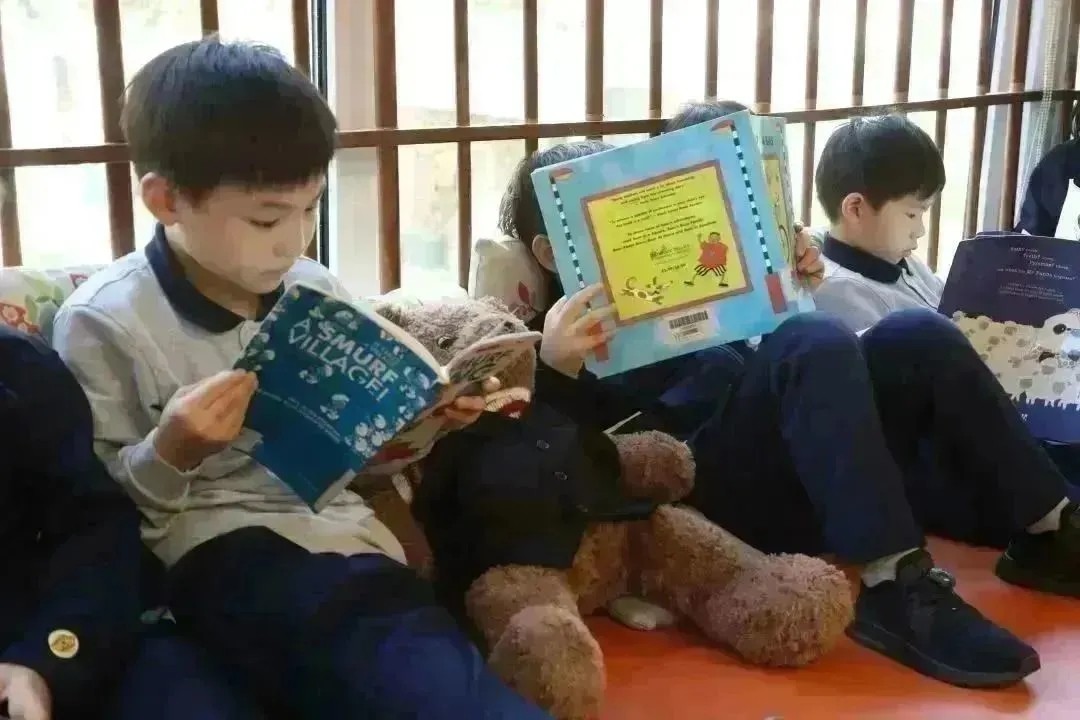
This year, Mr. Hassett wrote some of the poetry for his Year 1 students, as it allowed him to focus on creating pieces to teach poetic devices such as rhythm, alliteration, and onomatopoeia. In particular, one skill the students learn early on is to not only read and write poetry, but to also perform it. He explains, “With the year one, we're really thinking about trying to encourage them to get up and do some actions and express themselves – the basics. And in later years they can build on that.”
Poetry performances and retellings play an important role in developing students’ confidence. English teachers at the Primary School take as many opportunities as possible to record students’ readings and share them with parents. These performances can also act as a gateway into other forms of creative expression, as the poetry can become part of a musical or drama performance.
Alongside units dedicated to poetry, the English Department teaches the ‘Let’s think in English’ programme – which is centred around developing students’ speaking and listening skills. The programme is taught from Year 2-5, with dedicated lessons every two weeks throughout the year. Poetry is frequently used as a tool to teach the students certain skills, such as understanding symbolism, which allows students to be exposed to poetry often and consistently through their studies.
The English Programme at the Primary School
Through students’ journey at the Primary School, teachers aim to provide a positive learning environment in order to foster creativity and independent growth within the English language. In English classes, the learning goals are divided between speaking, listening, reading, and writing with further support for phonics, spelling and grammar. Teachers guide students towards the sourced learning standards by using reflective practices, giving regular focused learning feedback, and differentiated instruction in order to meet their individual needs.
Students' Poems
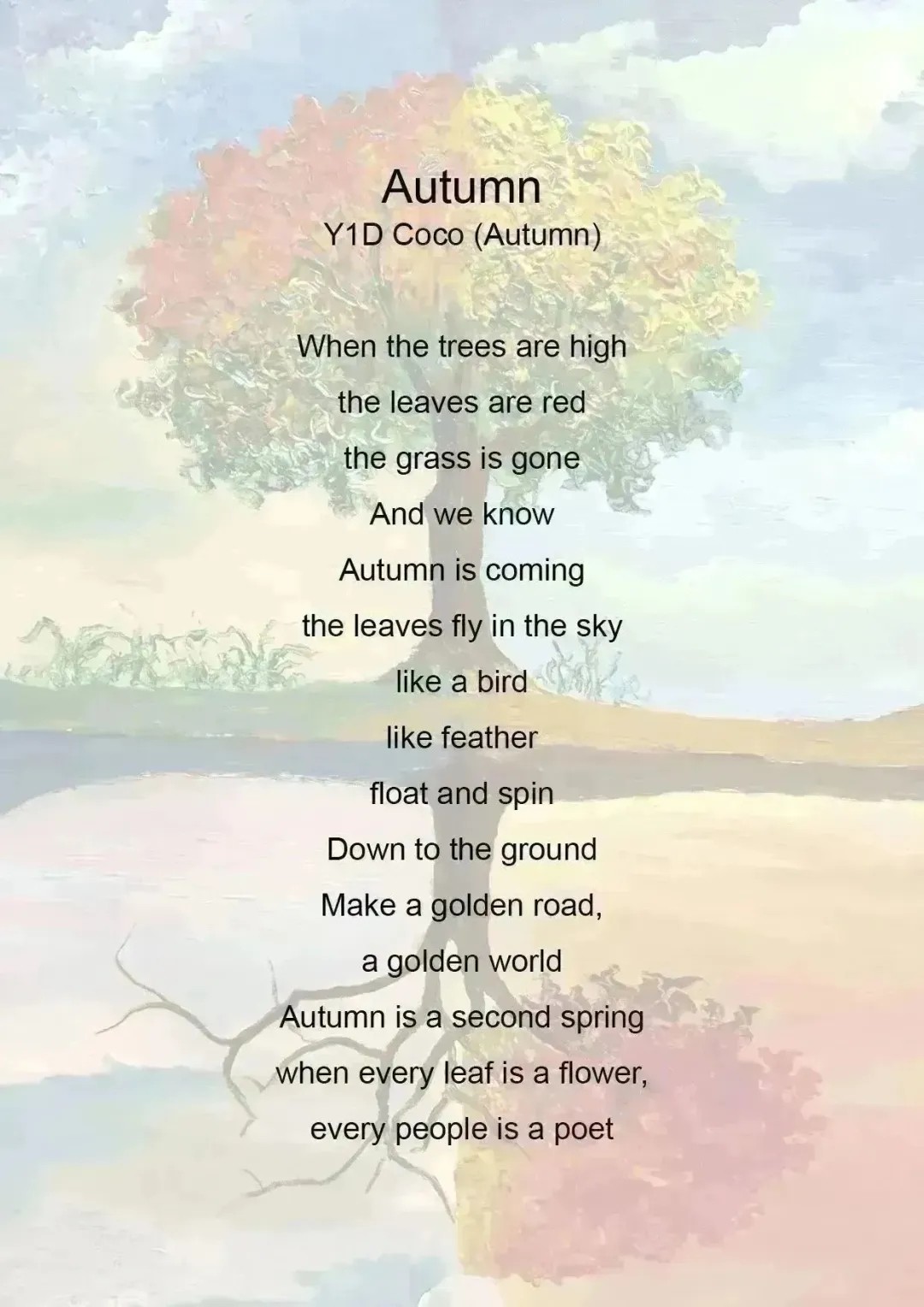
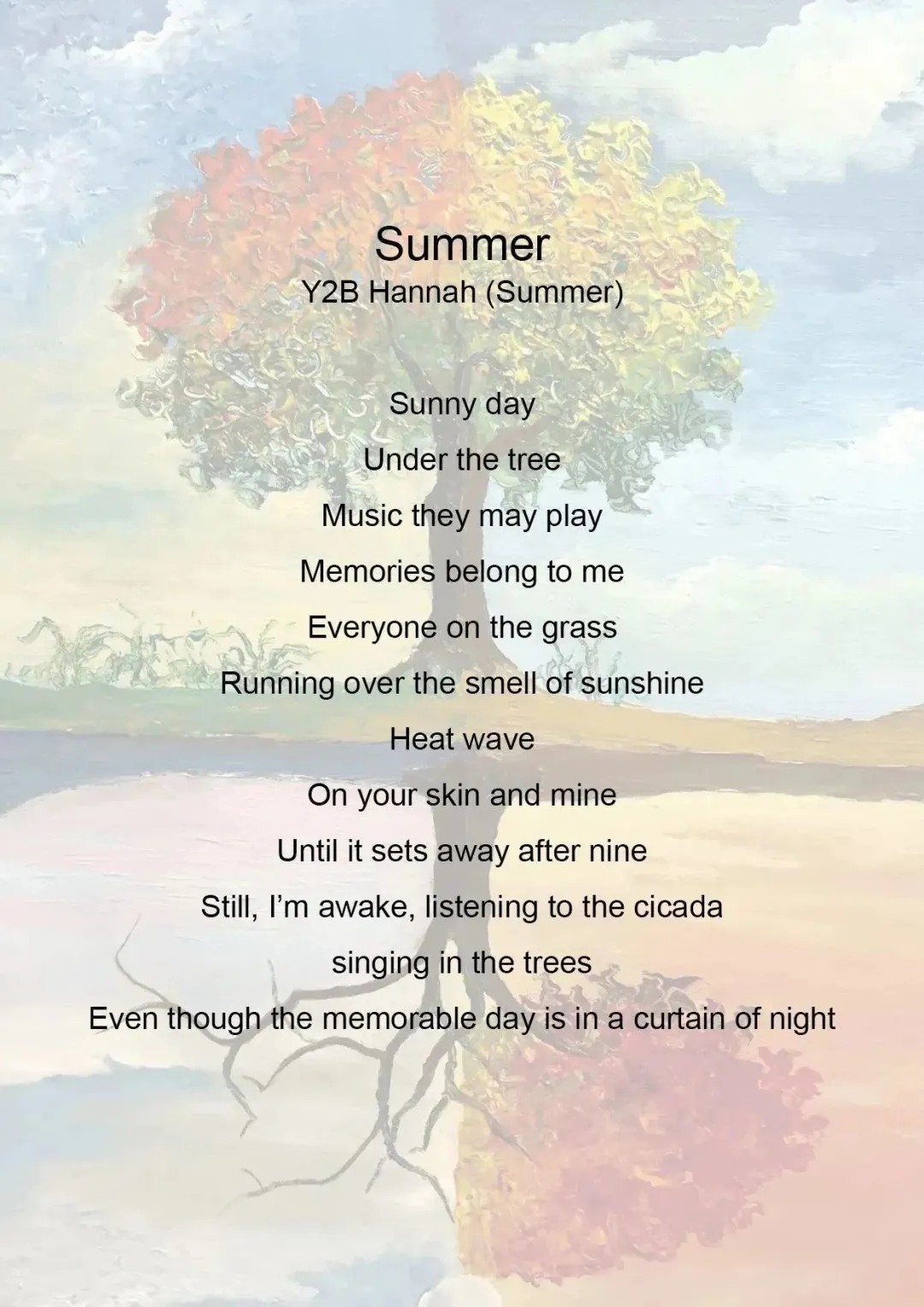
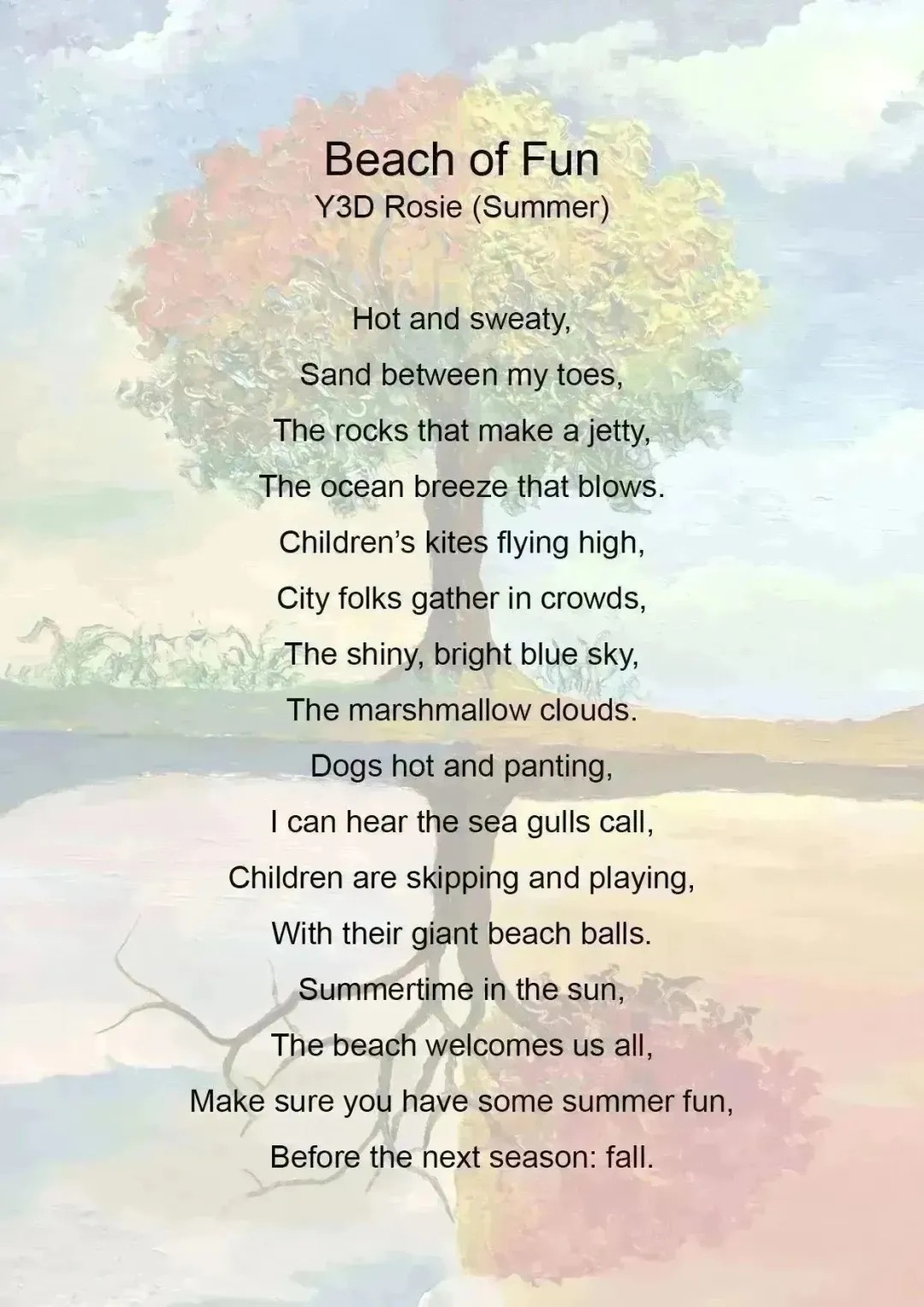
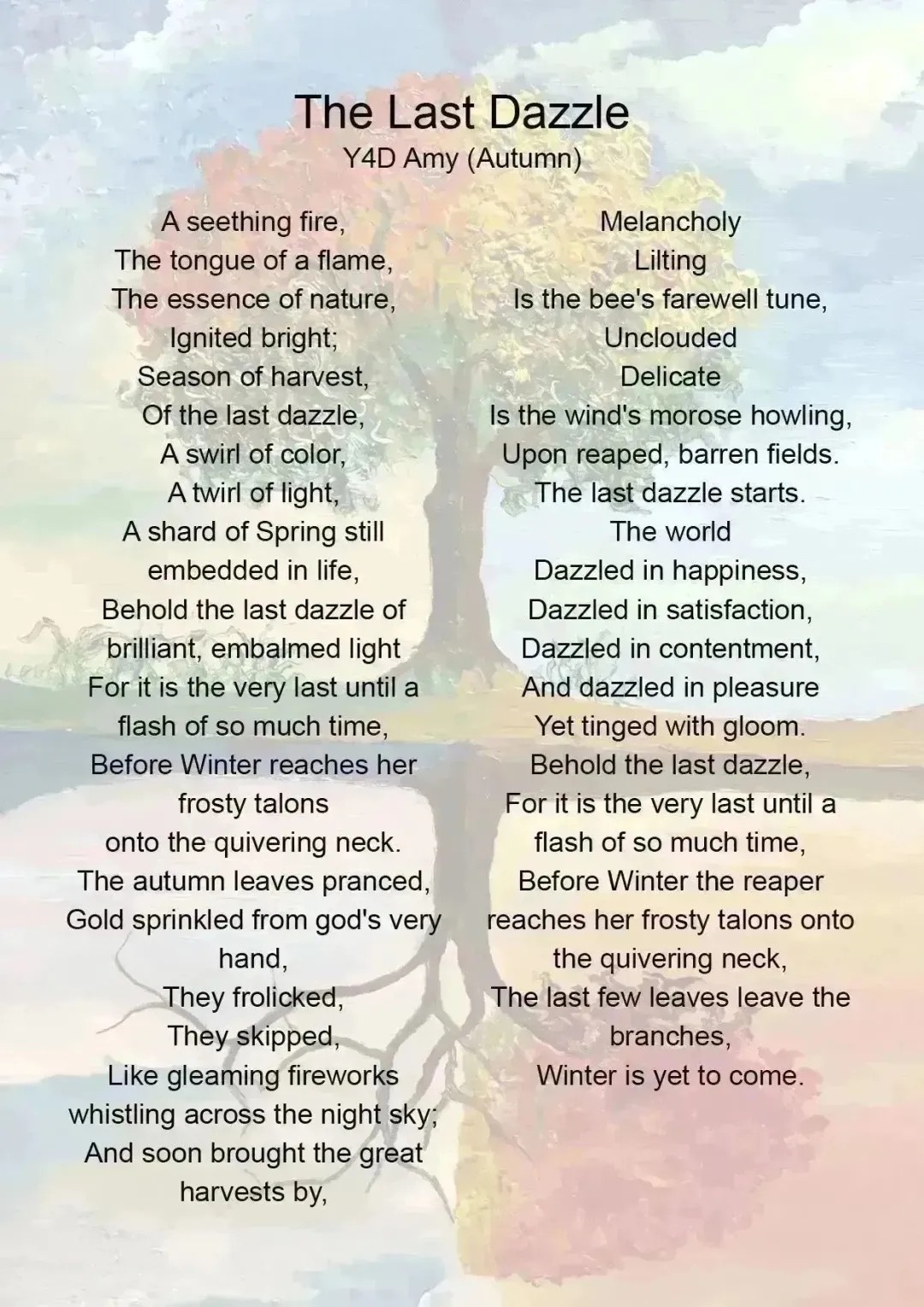
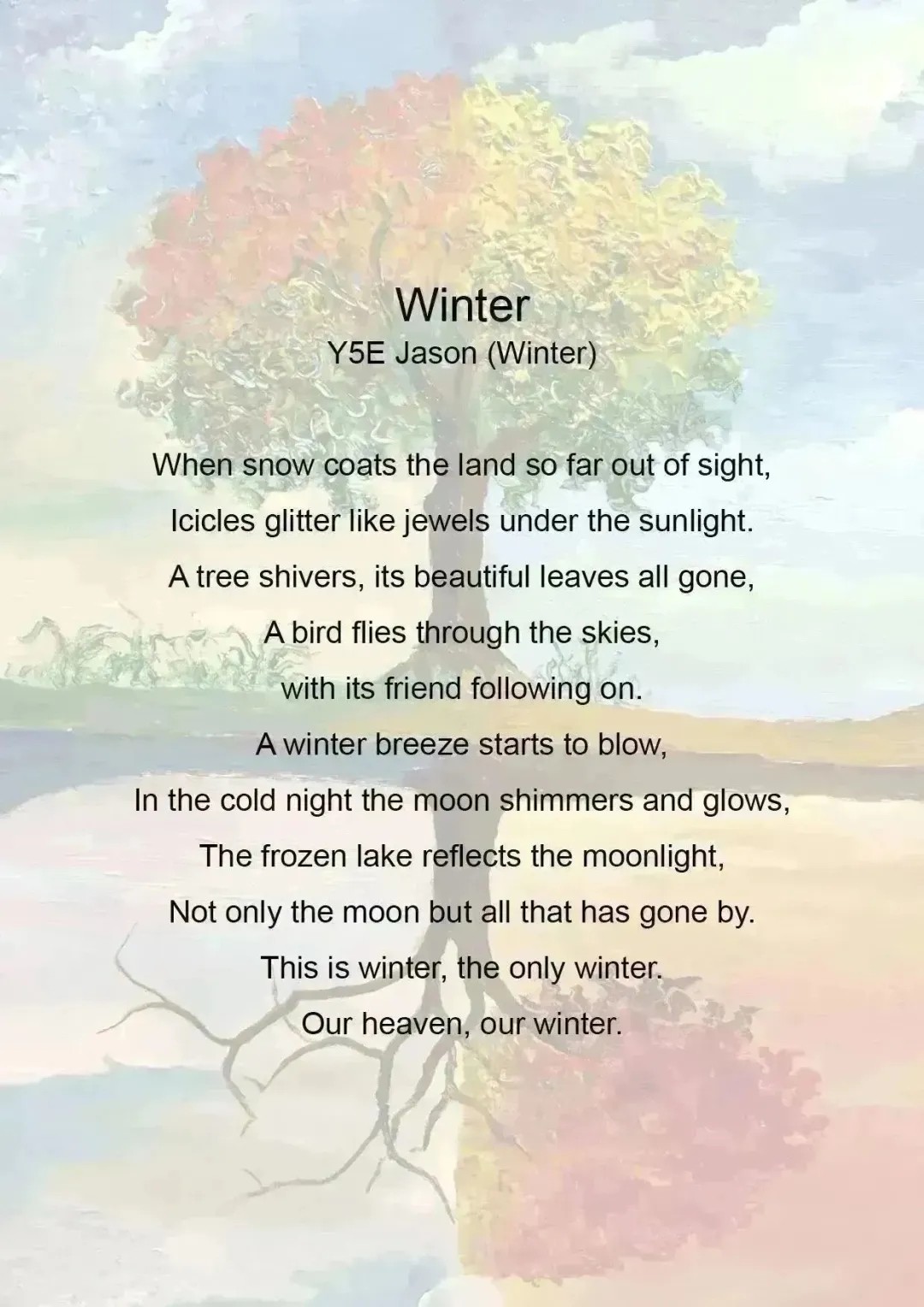
Students' Voice
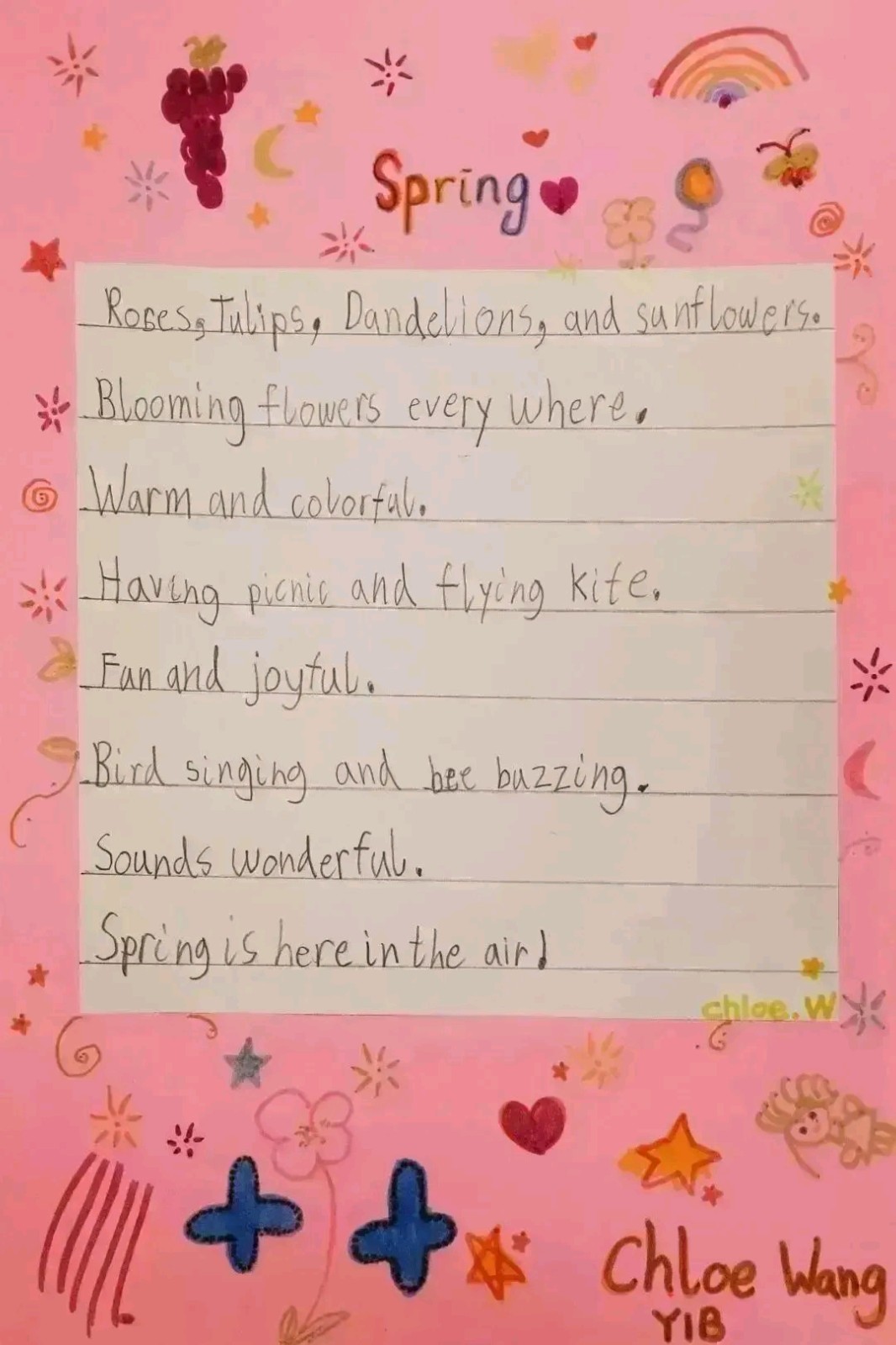
I wrote about flowers, having a picnic, and flying kites because my poem is about spring.
——Y1B Chloe

Practice makes perfect. I actually hadn't written a poem before. At first the writing was very messy,
but I practised and practised again and then changed my mind and then turned it into a flower.
——Y2B Sophia
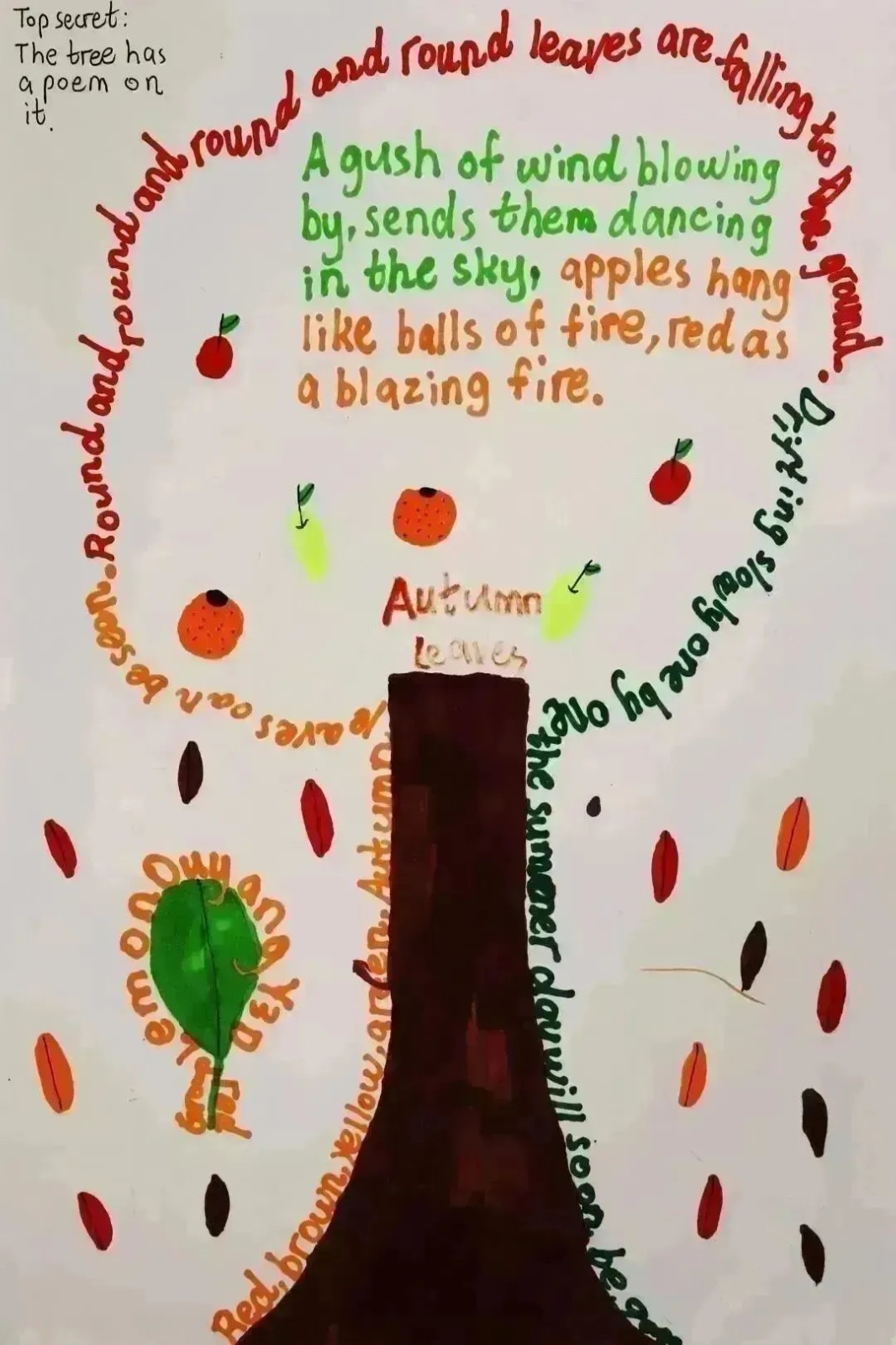
In class, we learned that when we write poems, we need to use our imaginative
minds and use poetry features like rhyming words and adjectives.
——Y3D Lemon
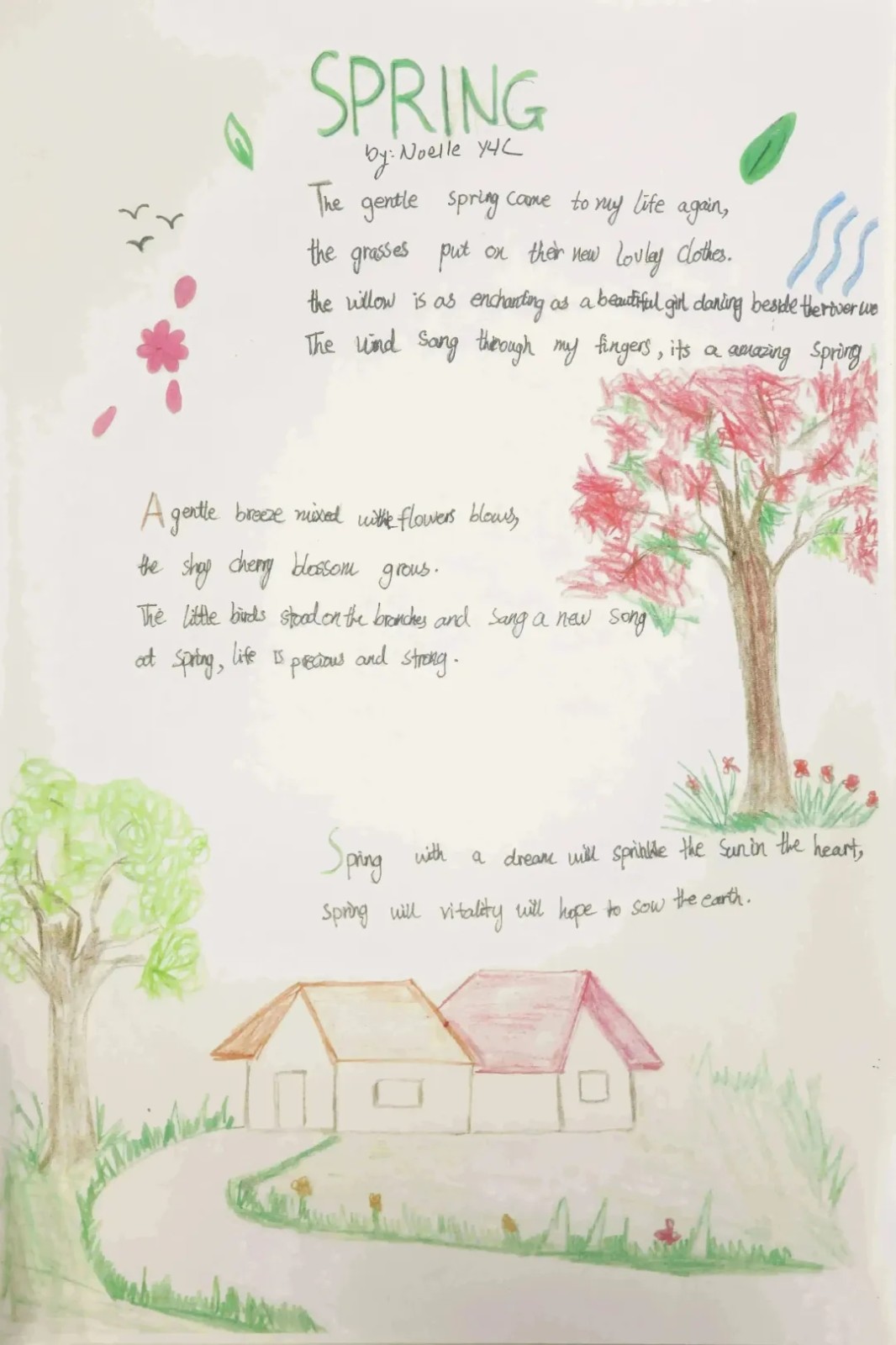
You can imagine different things, even things that are unrealistic, it makes you think more and more.
——Y4C Noelle
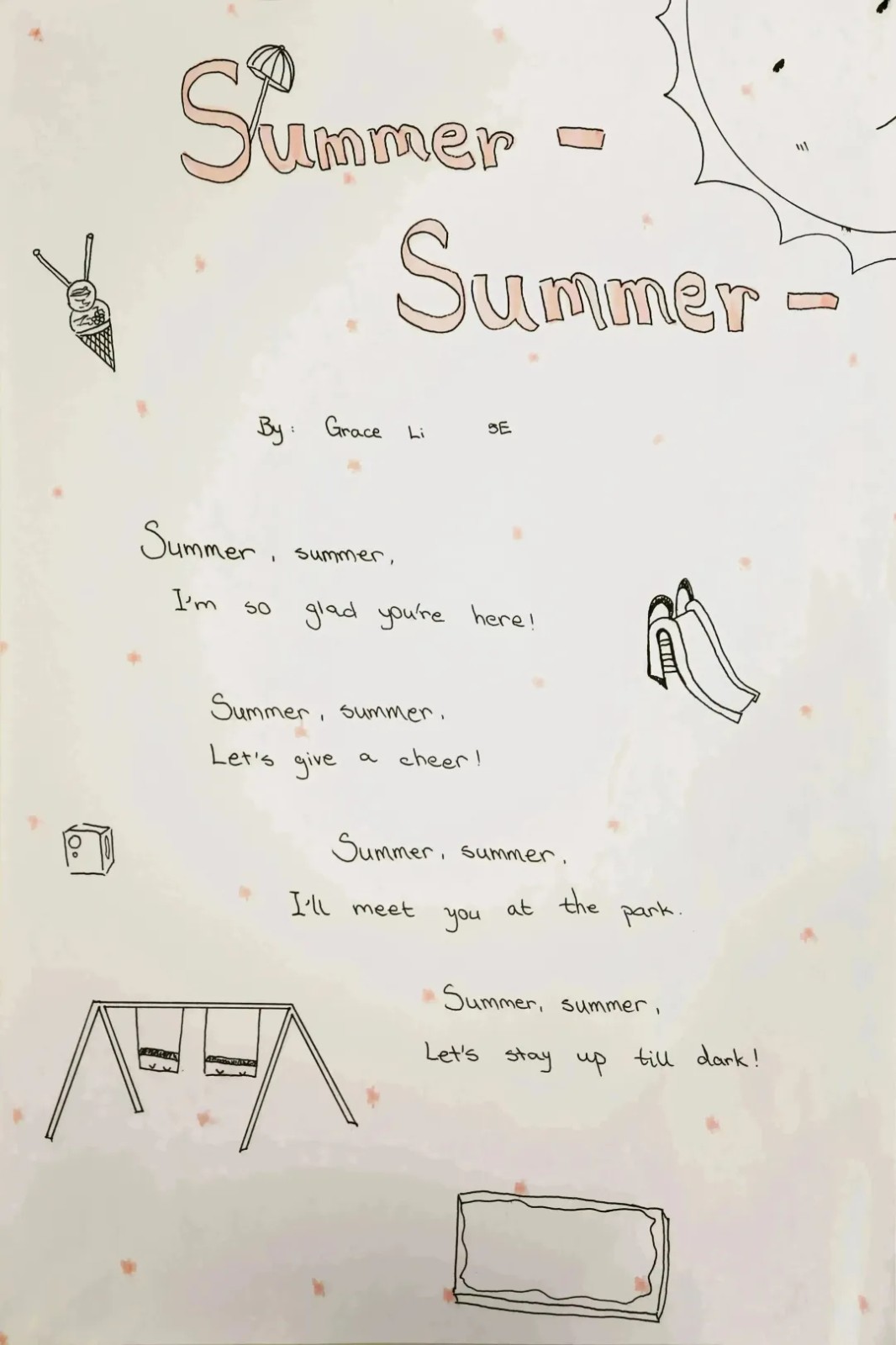
I love writing poetry because it helps me clarify the moment, for myself, for others, and even for society.
I love writing poetry because it takes an issue or experience, wraps it in vivid feelings, and gives it to others as well as myself like a gift.
I love writing poetry because it connects me to the vast world in a way nothing else can ever have or ever really had.
——Y5E Grace